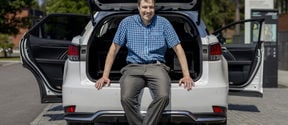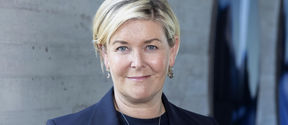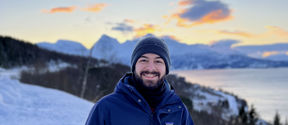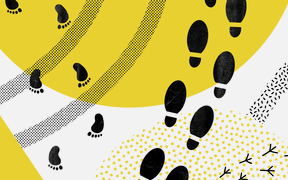What is it like to walk in your shoes?
I think my shoes are quite unique, and so is my path. You don’t get to see a lot of women like me, a non-white female from Bangladesh, in academic leadership positions. Especially in a male-dominated field like marine technology.
It’s been rewarding to see that I’ve inspired a few young women with my journey. I’ve heard my students saying, ‘You can’t be what you can’t see.’ That’s the best part of my job – I’m happy to be that someone. I am leading an all-female team at the moment, and I get asked if I prefer female candidates. I don’t, the fact is just that I get many more female applicants than my other colleagues. And I feel very fortunate that I can help them see how good they are and what they can do.
At Memorial, my supervisors and the group helped me see what I could be even before I had any idea of how to do things. But thinking back to my childhood in Bangladesh, I would probably have not seen myself where I am now. I heard a lot about what I couldn’t do and very little of what I could. But I had a very supportive family, and maybe that’s why I ended up where I am, no matter what everybody else was saying. That gave me confidence when I needed it the most.
So, my journey so far has been a very exciting and rewarding one, but in many parts, it also felt a bit lonely.
If you have experienced ice breaking in social situations, can you share the story?
Last year I was working on a big Strategic Research Council application, and that was my first time leading a consortium of five or six people. Nobody invited me in for a proposal because nobody knew I existed in Finland. So, I gathered some ideas and reached out to a few people, and most of them said yes. But it was quite a lot of work. I usually do well in writing, like getting ideas and putting them together, but I struggle with managing people and projects.
After I submitted the application, I had lunch with a colleague. I told her that I felt like I was recovering from surgery or something. The application took everything out of me. When I came back in the afternoon, I got a message from her saying that nobody ever shared that perspective with her. She also feels that way after every application and hearing me say it out loud made her feel seen and heard.
So, I think being your authentic self and sharing how we truly feel brings us closer as humans. It’s also something to be patient with. I’m slowly building my network.
It takes time to make friends at my age. I’ve approached this from different perspectives. I’ve found a few people who I can talk with about computer science, machine learning and AI. And I’ve also approached colleagues to have lunch and talk about how our toddlers behaved in the morning. Aalto hosted our accommodation at Aalto Inn for the first six months, and that was helpful. I made some good friends there who were also new. They were going through similar struggles.
In my own little team, I’m trying to build a culture where we celebrate small moments. I always take time to thank people for things and tell someone when they’ve done something good.








